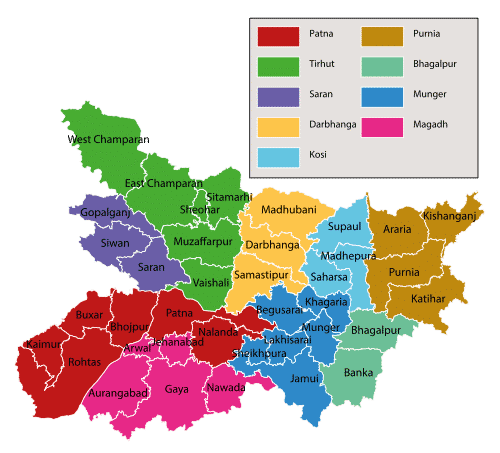Why is Indonesia changing its capital city?
In August 2019, President Joko Widodo first announced that the capital would be shifted from Jakarta, on the island of Java, which has served as the national capital since Indonesia’s independence, to a new city to be built in East Kalimantan on the island of Borneo, some 2,000 km northeast of Jakarta across the Java Sea.
In January 2022, Indonesia’s Parliament approved a bill to relocate the country’s capital from Jakarta to a new city to be built on the island of Borneo, named as Nusantara. The decision followed growing concerns about the long-term sustainability of Jakarta. The move to the forested province of East Kalimantan in Borneo has, however, triggered its own concerns about the environmental impact there as the massive project now kicks off.
Jakarta has been Indonesia’s capital since the country became independent in 1949. The city has become overcrowded and extremely polluted for the last few decades. Jakarta has been known for extremely high air pollution. The city’s pollution levels are so bad that it has been ranking as one of the most polluted cities in the world for years.
Another important reason to shift the capital from Java island to Borneo island has been the growing inequality – financial and otherwise. Java Island, especially Jakarta which is spread across more than 661.5 square kilometres, is immensely populated where as while East Kalimantan, spread across 127,346.92 square kilometres, is bigger than Jakarta, it is a lot less populated than the current capital.
Along with this, Jakarta has also been sinking and it has been said that if nothing was done, many parts of the city would submerge underwater by 2050. Indonesia is prone to floods, and Jakarta is surrounded by multiple rivers.

- The shift in the capital is being made due to the massive environmental challenges facing Jakarta, a city that suffers from frequent flooding and is one of the fastest sinking cities of the world.
- Studies have forecast that the entire city could sink by 2050, while flooding is a recurring problem.
- Construction of apartments blocks and shopping malls has increased the risks of flooding.
- The northern part of the city has been sinking at an estimated 25 cm a year.
- Water for drinking is extracted from shallow aquifers, and that could lead the land above it to collapse.
- The concerns, however, are more than environmental.
- Redistribution of wealth is also an important objective of this shift.
- Java, the island consisting of Jakarta, houses 60 percent of the whole country’s population, which is around 278 million at the moment.
- More than 50 percent of the country’s economic activity takes place in Java, while Kalimantan is almost four times the size of the former.
- A shift in the capital, therefore, aims to ease the burden of human activity on Jakarta and Java.
Where is East Kalimantan?
- East Kalimantan is 2,300 kilometres from Jakarta on the eastern side of Borneo island, shared by Indonesia, Malaysia and Brunei.
- The new capital will be located in the North Penajam Paser and Kutai Kartanegara regions.
- East Kalimantan is an area with immense water resources and habitable terrain.
East Kalimantan is rich in flora and fauna. Many environmentalists and activists have warned that moving the capital to East Kalimantan would lead to massive deforestation and put the habitat of these animals and trees in danger and damage the ecosystem.
Why has it been named Nusantara?
- The name literally means “archipelago”, but also has a historical context referring to the entire region, including Indonesia and its neighbours in Southeast Asia.
- The Planning Minister said Nusantara “is a unity concept that accommodates all of our diversity, whether in race, language, or ethnicity” and the hope was for the new capital to be reflective of that aspiration.
- The name Nusantara dates back to Majapahit, a Hindu empire that was based in Java and ruled from the late 13th to the early 15th centuries.
- At its peak, its reach or influence extended beyond today’s Indonesia to much of Southeast Asia, including Brunei and parts of Thailand and the Philippines.
- While the official explanation is that this connotes diversity, there has been some head-scratching as to why President Widodo, who chose the name from a list of 80 suggestions, finally decided on one that refers not only to Indonesia but to the entire region.
What are the other countries that Have Recently Shifted capitals?
Indonesia is not the first country to change its capital city. There has been a long list of countries that have changed their capitals for various reasons throughout history, from the weather and military reasons to pride projects and just politics.
- Kazakhstan and Myanmar offer two recent examples.
- In 1997, Kazakhstan shifted its capital from Almaty to Astana, like many new capitals, a planned city. Then Astana was itself renamed in 2019 to Nur-Sultan, in homage to long-term former President Nursultan Nazarbayev (currently facing the ire of protesters amid the recent unrest).
- Myanmar in 2005 shifted its capital from Yangon to another planned city, Naypyidaw. Strategic reasons were cited as one possible explanation for the military regime’s decision.
- Brazil changed its capital city from Rio De Janerio to Brasilia, a more centrally-located city, in 1960.
- In 1991, Nigeria hanged the country’s capital from Lagos to Abuja.
Also refer :








